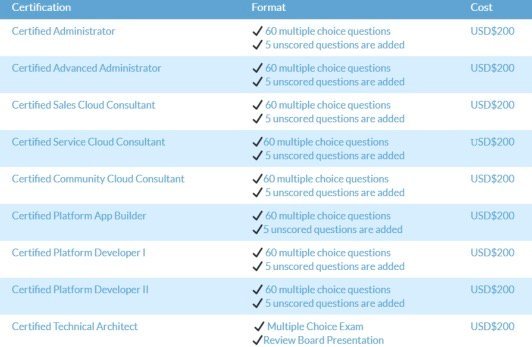Are you planning to take the Cisco 300-410 ENARSI exam? Passing this test is a major step toward earning your CCNP Enterprise certification, but it requires a specific set of advanced skills. This guide breaks down exactly what you need to know, from routing technologies to infrastructure services, helping you focus your study efforts and walk into the exam with confidence. Understanding these topics is the key to achieving a passing score on your first attempt.
Decoding the 300-410 ENARSI Exam: What to Expect
Before diving into the technical skills, it’s crucial to understand the exam’s structure and logistics. The 300-410 ENARSI, or Implementing Cisco Enterprise Advanced Routing and Services, is a 90-minute proctored exam that tests your ability to implement and troubleshoot complex network environments. It is one of the concentration exams you can take to earn the CCNP Enterprise certification.
Knowing the basic details helps you prepare mentally and logistically for test day. The exam costs $300 and can be taken either online or at an official testing center. Success in this exam proves your expertise in advanced routing and infrastructure topics.
Here is a quick overview of the key exam details.
| Detail | Information |
|---|---|
| Test Code | 300-410 ENARSI |
| Duration | 90 minutes |
| Cost | $300 |
| Delivery | Online or On-site |
| Related Certifications | CCNP Enterprise, Cisco Certified Specialist |
This exam is not just about memorizing commands; it’s about applying your knowledge to real-world troubleshooting scenarios. Cisco wants to see that you can diagnose and resolve issues effectively under pressure.
Mastering Layer 3 Technologies for the Exam
A significant portion of the ENARSI exam focuses on Layer 3 technologies. This is the foundation of enterprise routing, and your skills in this area will be thoroughly tested. You must be able to not only configure but also troubleshoot various routing protocols and features.
The exam expects you to have a deep understanding of EIGRP, OSPF, and BGP. This includes troubleshooting issues related to neighbor relationships, route advertisement, and path selection. You’ll also need to be proficient with route summarization and loop prevention mechanisms, which are critical for maintaining a stable and scalable network.
Beyond the core protocols, other specific skills are required. Candidates must demonstrate proficiency in configuring and verifying policy-based routing and VRF-Lite. These technologies are essential for traffic engineering and network segmentation in modern enterprise networks.
Key troubleshooting areas in this section include:
- EIGRP neighbor and path selection issues.
- OSPF adjacency problems and route advertisement.
- BGP neighbor relationships and path attributes.
- Bidirectional Forwarding Detection (BFD) for fast failure detection.
Key VPN Technology Skills You Must Have
Virtual Private Networks (VPNs) are essential for secure enterprise connectivity, and the 300-410 exam covers them in detail. You will need to demonstrate skills related to both site-to-site VPNs and the underlying technologies that support large-scale VPN deployments.
The primary focus here is on Dynamic Multipoint VPN (DMVPN). You must know how to configure and verify all components of a DMVPN solution, including hubs and spokes. This technology is popular for connecting multiple branch offices to a central headquarters in a scalable way.
In addition, the exam tests your knowledge of MPLS (Multiprotocol Label Switching). While you may not be configuring an entire MPLS network from scratch, you need to understand its operations and how MPLS Layer 3 VPNs work. This knowledge is crucial for anyone working in a service provider environment or a large enterprise that uses MPLS services.
Securing the Infrastructure: a Core Exam Focus
Network security is no longer an afterthought, and the ENARSI exam reflects this reality. The infrastructure security section is heavily focused on troubleshooting, requiring you to diagnose and fix security-related problems on network devices.
A major topic is device security using IOS AAA (Authentication, Authorization, and Accounting). You should be comfortable troubleshooting issues with local and server-based AAA configurations. Another critical area is router security, which includes securing the control plane with features like Control Plane Policing (CoPP). This prevents the router’s CPU from being overwhelmed by denial-of-service attacks.
The exam also covers security features for IPv6. You must be prepared to troubleshoot IPv6 First Hop Security features, including RA Guard, DHCP Guard, and source guard. These tools help protect the network from common attacks in an IPv6 environment.
Understanding Infrastructure Services and Troubleshooting
This final technical domain covers the essential services that keep a network running smoothly. Your ability to diagnose problems with these services is a key measure of your expertise. The topics range from network monitoring to device management.
You will need strong troubleshooting skills for DHCP in both IPv4 and IPv6 environments. The exam will also test your ability to diagnose issues using NetFlow, a powerful tool for network traffic analysis. Proficiency in using logging tools and Cisco DNA Center assurance is required to effectively troubleshoot network performance.
Effectively diagnosing network issues often comes down to having the right data. Understanding how to configure and interpret logs, NetFlow data, and assurance dashboards will give you a significant advantage on the exam and in your career.
Certifications Unlocked with a Passing Score
Passing the 300-410 ENARSI exam is a significant achievement on its own, but its true value lies in the certifications it helps you earn. It is a major milestone in your professional development that is recognized globally.
First, upon passing, you immediately earn the Cisco Certified Specialist – Enterprise Advanced Infrastructure Implementation certification. This credential validates your specific skills in this advanced technology area.
More importantly, the 300-410 exam is one of the concentration exams for the prestigious CCNP Enterprise certification. To become fully CCNP Enterprise certified, you must pass this exam along with the core exam (350-401 ENCOR). These certifications open doors to higher-level job roles and increased earning potential.
Frequently Asked Questions about the Cisco 300-410 ENARSI Exam
What is the passing score for the Cisco 300-410 ENARSI exam?
Cisco does not officially publish the exact passing scores for its exams, as they can vary. However, the general consensus in the community is that you should aim for a score of around 825 out of 1000 to be safe.
How long is the certification valid for after passing the exam?
Both the CCNP Enterprise and the Cisco Certified Specialist certifications are valid for three years. To recertify, you must earn continuing education credits or pass another certification exam before the expiration date.
Is the 300-410 ENARSI exam difficult?
Yes, the 300-410 ENARSI is considered a challenging exam. It covers advanced topics and places a strong emphasis on hands-on troubleshooting rather than just theoretical knowledge. Extensive preparation and practical experience are highly recommended.
What are the main topics covered in the ENARSI exam?
The main topics are divided into four sections: Layer 3 Technologies (including EIGRP, OSPF, BGP), VPN Technologies (DMVPN, MPLS), Infrastructure Security (AAA, CoPP), and Infrastructure Services (DHCP, NetFlow, DNA Center).
Can I take the 300-410 exam before the 350-401 ENCOR core exam?
Yes, you can take the Cisco certification exams in any order. There are no prerequisites for taking the 300-410 ENARSI exam, but you will not receive the full CCNP Enterprise certification until you have passed both a core exam and a concentration exam.








Leave a Comment